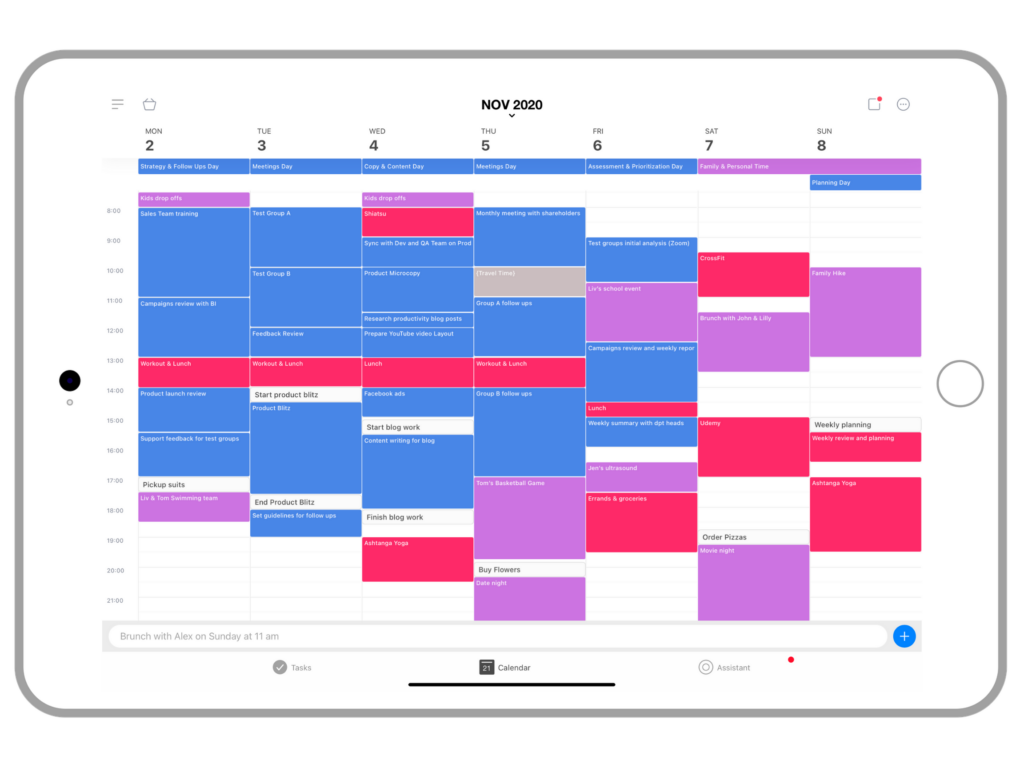Table of Contents
Maximizing Productivity: Unleashing the Power of Time Tracking, Time Estimates, and Time Blocking

In today’s fast-paced world, effective time management has become the cornerstone of success. Time tracking, time estimates, and time blocking are powerful techniques that can elevate your productivity, streamline your workflow, and propel you towards your goals. In this article, we will explore the significance of these practices and how they can revolutionize the way you approach your tasks and objectives. By understanding their importance, you can harness their potential to make better use of your time and unleash your maximum output.
Time Tracking: Unveiling the Insights
Time tracking is such an important tool that can help you enhance your productivity in a professional or personal context. Essentially, it requires you to keep a close record of time spent accomplishing different tasks or activities throughout your day. This means that you’ll be able to detect the patterns which may be negatively affecting how you use your time and get rid of them so that you can save much more time for more productive work.
When you start tracking your time, you unveil a wealth of information about your work habits, routines, and productivity patterns. It allows you to answer important questions such as:
1. Where does your time go?
Time tracking reveals how much time you spend on different activities, such as client meetings, administrative tasks, or project work. It helps you identify areas where you may be spending excessive time or areas where you can make adjustments to improve efficiency.
2. Are you allocating time effectively?
By reviewing your time tracking data, you can determine if you are allocating your time in a way that aligns with your priorities and goals. It helps you assess if you are dedicating sufficient time to high-priority tasks or if you are getting caught up in non-essential activities.
3. How much time do tasks take?
Time tracking allows you to understand the actual time it takes to complete specific tasks or projects. This information is invaluable for accurate project planning, setting realistic deadlines, and managing client expectations.
4. Are there time-wasting activities?
Tracking your time exposes any time-wasting activities or habits that may be hindering your
productivity. It helps you identify distractions, unnecessary meetings, or inefficient workflows that can be optimized or eliminated.
5. When are you most productive?
Time tracking data can reveal your peak productivity periods. You can identify the time of day when you are most
focused, energized, and able to tackle complex tasks. This insight enables you to schedule important work during these productive periods
to maximize efficiency.
Time Estimates: Mapping Your Path to Success

Time estimates involve predicting the duration required to complete specific tasks or projects. By accurately estimating the time needed for each task, you can create realistic schedules, set achievable deadlines, and effectively allocate your resources. The power of time estimates lies in their ability to enhance project planning, prevent procrastination, and foster a sense of accountability. When you set clear time expectations, you are more likely to stay focused and committed to completing tasks within the estimated timeframes.
When it comes to time estimates, the key is to strike a balance between being ambitious and being realistic. Here’s why time estimates are important in optimizing your productivity:
1. Setting Realistic Deadlines
Time estimates help you set realistic deadlines for your tasks and projects. By understanding the time required for each activity, you can avoid overcommitting yourself and ensure that you allocate enough time to complete your work without feeling overwhelmed. Setting achievable deadlines improves your focus and reduces the chances of experiencing unnecessary stress due to time constraints.
2. Effective Resource Allocation
Accurate time estimates facilitate effective resource allocation. When you have a clear idea of how long certain tasks will take, you can allocate your time, energy, and resources accordingly. This enables you to prioritize your work, delegate tasks when necessary, and make optimal use of available resources.
3. Improved Planning and Prioritization
Time estimates allow you to plan and prioritize your tasks more effectively. By breaking down larger projects into smaller, manageable chunks and estimating the time required for each component, you can create a structured plan that ensures steady progress. This helps you focus on high-priority tasks, optimize your workflow, and avoid unnecessary delays.
4. Enhancing Decision-Making
Accurate time estimates provide valuable insights for decision-making. When you have a clear understanding of the time required for different tasks, you can make informed decisions about project timelines, resource allocation, and the feasibility of taking on additional responsibilities. This enables you to make better choices, manage expectations, and avoid overcommitting yourself or your team.
5. Increased Accountability
Time estimates foster accountability both individually and within teams. By committing to specific timeframes for completing tasks, you hold yourself accountable for meeting those deadlines. Additionally, sharing time estimates with team members creates transparency and facilitates collaborative planning, ensuring that everyone is aligned and working towards a common goal.
In summary, time estimates play a crucial role in mapping your path to success. By accurately predicting the time needed for tasks and projects, you can set realistic deadlines, allocate resources effectively, enhance planning and prioritization, improve decision-making, and foster accountability. Mastering the art of time estimation empowers you to optimize your productivity, meet deadlines consistently, and achieve your goals with confidence.
Time Blocking: Carving Out Your Productive Sanctuary

Time blocking is a powerful productivity technique that involves scheduling specific blocks of time for dedicated focus on particular tasks or activities. It allows you to create a structured and intentional approach to managing your time, helping you maximize productivity, minimize distractions, and create a productive sanctuary for yourself. Here’s why time blocking is an essential practice for optimizing your productivity:
1. Enhanced Focus and Concentration
By designating specific time blocks for particular tasks, time blocking helps you create a focused and distraction-free environment. When you commit to dedicating uninterrupted time to a specific activity, you can eliminate distractions and immerse yourself fully in the task at hand. This heightened focus allows you to work more efficiently, maintain concentration, and produce higher quality output.
2. Efficient Task Transition
Time blocking enables seamless transitions between tasks. By allocating dedicated time blocks for different activities, you can avoid the mental strain and time loss associated with constant task switching. Instead of jumping back and forth between unrelated tasks, you can complete one task before moving on to the next. This promotes a smoother workflow and helps maintain momentum throughout your workday.
3. Increased Productivity and Efficiency
When you implement time blocking, you optimize your productivity and efficiency by aligning your tasks with your energy levels and peak performance times. By scheduling tasks during your most productive periods, you can leverage your natural rhythm and tackle complex or demanding work when you’re at your best. This leads to improved productivity, faster task completion, and a sense of accomplishment.
4. Improved Work-Life Balance
Time blocking allows you to create a structured schedule that encompasses both work and personal activities. By blocking out time for important personal commitments, self-care, and leisure activities, you ensure a healthy work-life balance. This helps prevent work from spilling into personal time and allows you to recharge, rejuvenate, and maintain overall well-being.
5. Effective Time Management and Prioritization
Time blocking serves as a powerful tool for effective time management and prioritization. By visually organizing your schedule and allocating time for specific tasks, you gain a clear overview of your commitments and deadlines. This enables you to prioritize tasks, allocate sufficient time for important activities, and ensure that essential work gets completed in a timely manner.
Conclusion
In conclusion, incorporating time tracking, time estimates, and time blocking into your daily routine can have a profound impact on your productivity, efficiency, and overall success. By understanding the importance of these practices, you can make better use of your time and maximize your output.
Through effective time tracking, you gain valuable insights into your work patterns, identify areas for improvement, and make data-driven decisions to optimize your productivity. Time estimates help you set realistic expectations, manage your workload, and meet deadlines with confidence. And with time blocking, you create a productive sanctuary where you can focus, prioritize, and achieve your goals efficiently.
Remember, time is a finite resource, and how you manage it determines your level of productivity and success. Embracing time tracking, time estimates, and time blocking not only helps you make the most of your time but also empowers you to achieve a healthy work-life balance and experience greater fulfillment in both your personal and professional endeavors.
So, take control of your time, unleash your productivity potential, and pave the way to success by implementing these valuable practices. Start today and witness the transformative impact they can have on your life and career.
